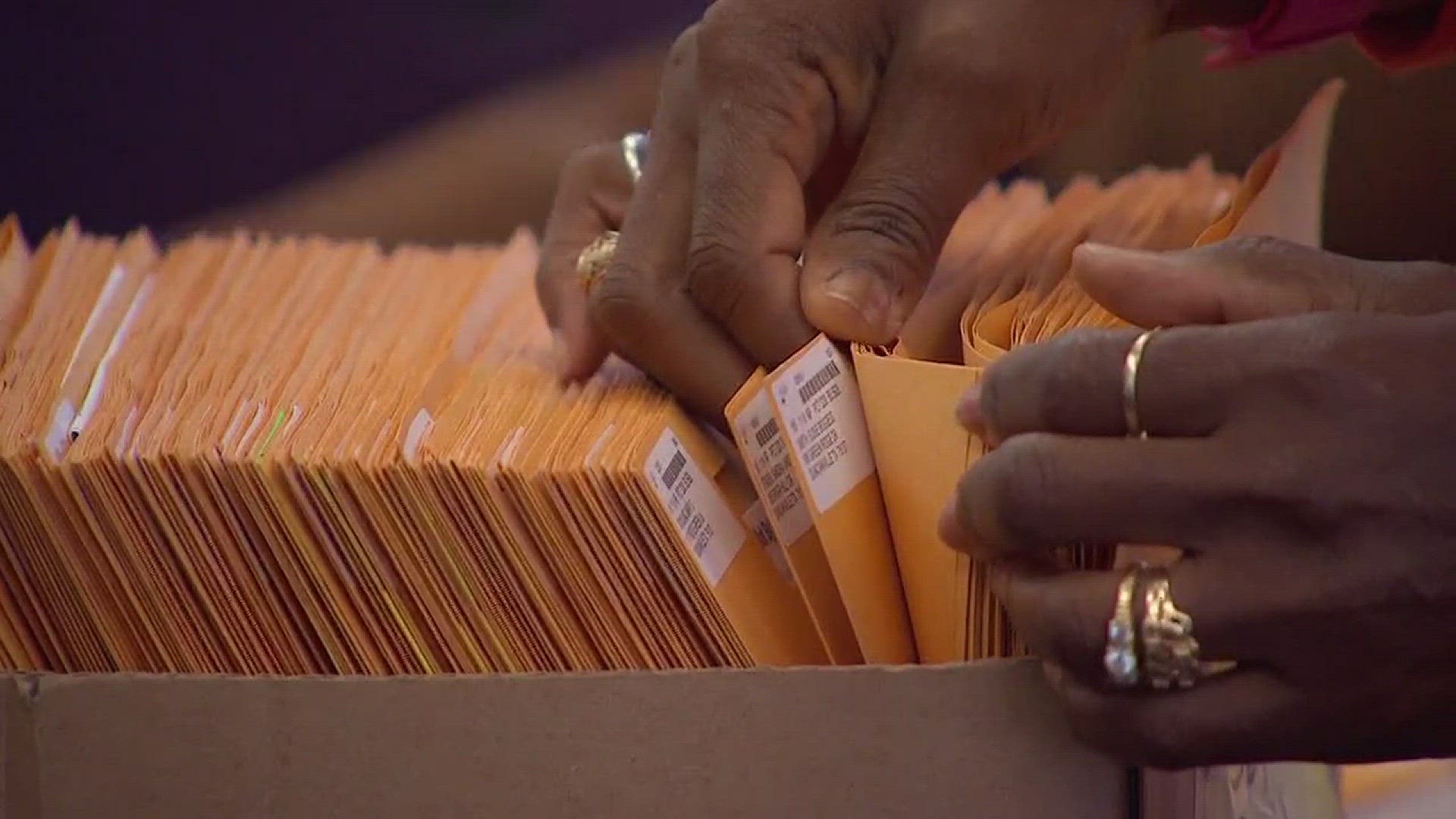DALLAS – At least 17 deceased individuals applied for a ballot to vote in the May 6 election, according to the Dallas County elections department.
“No ballots were mailed,” said Toni Pippins-Poole, Dallas County’s Elections Administrator. “These documents were also sent to the DA’s office to investigate.”
One of the individuals is Rojelio Riojas. Dallas County mailed him an application to vote by mail in the May election. But records from county probate court show Riojas died Sept. 29, 2014.
So who applied for a ballot in his name? It’s part of the criminal investigation underway by the Dallas County District Attorney’s Office.
Dallas County Elections Department records also indicate that a man named John Henry Jhounkin actually voted on May 6.
But Jhounkin's family told WFAA that he died of cancer at Parkland Hospital in 2005.
The county called the Jhounkin case a clerical error.
“I have reviewed our election day precinct poll book, and it appears that an error was made at the polling place. The son of John Henry Jhounkin, who is registered at the same address, actually signed in the space of the father’s, which is just the line below his name. We have made the correction and provided the vote history to Gregory’s records,” explained Pippins-Poole.
But why is a dead man's name on the voter rolls anyway?
State law says the county clerk or Secretary of State's office are supposed to review death certificates and alert the elections department if someone is deceased. Pippins-Poole said her office was not notified in this case despite Mr. Jhounkin’s death 12 years ago.
“However, due to your inquiry, we have confirmed with [Social Security Administration] and have cancelled this record,” she wrote to WFAA in an email.
Still, as of Wednesday evening, Jhounkin remains listed as eligible to vote in the next election, according to the Dallas County Elections website.
Local prosecutors began investigating allegations of voter fraud in March after people complained they received a mail-in ballot but never requested one. Voting by mail is only available to senior citizens, the disabled, or people who will be out of town on election day.
In court filings, Dallas County prosecutors said there were about 700 suspicious mail-in ballots during the May 6 local election.
Protecting the polls has always been the priority. But this election, in which a few hundred or even a few dozen votes could swing a race, revealed how susceptible absentee ballots are to fraud.
"I believe there are ballots that probably get taken out of mailboxes before a senior even knows it's arrived. I believe there are people who will go and take a senior’s ballot and help them fill it out and by helping them, I mean telling them what to do or unduly influencing them in how they vote. I believe there are people who will let them vote of their freewill, but if they don't like the result, [they] will actually discard the ballot. I think all those things happen,” said state Rep. Eric Johnson, D-Dallas.
Johnson said he will propose legislation to only allow relatives and caregivers to assist voters in filling out absentee ballots rather than letting campaigns and volunteers help.
Johnson also said the list of voters who apply for an absentee ballot should no longer be made public to protect them from being targeted.
"Most of the people who have been defrauded don't know they've been defrauded, so there's no complaint of fraud having occurred," he added.
Stopping abuse of mail-in ballots is one of the 20 issues that Governor Greg Abbott wants lawmakers to tackle in a special session beginning July 18.
Still, it will be a fine line between correcting the problem and disenfranchising voters, Johnson added.

